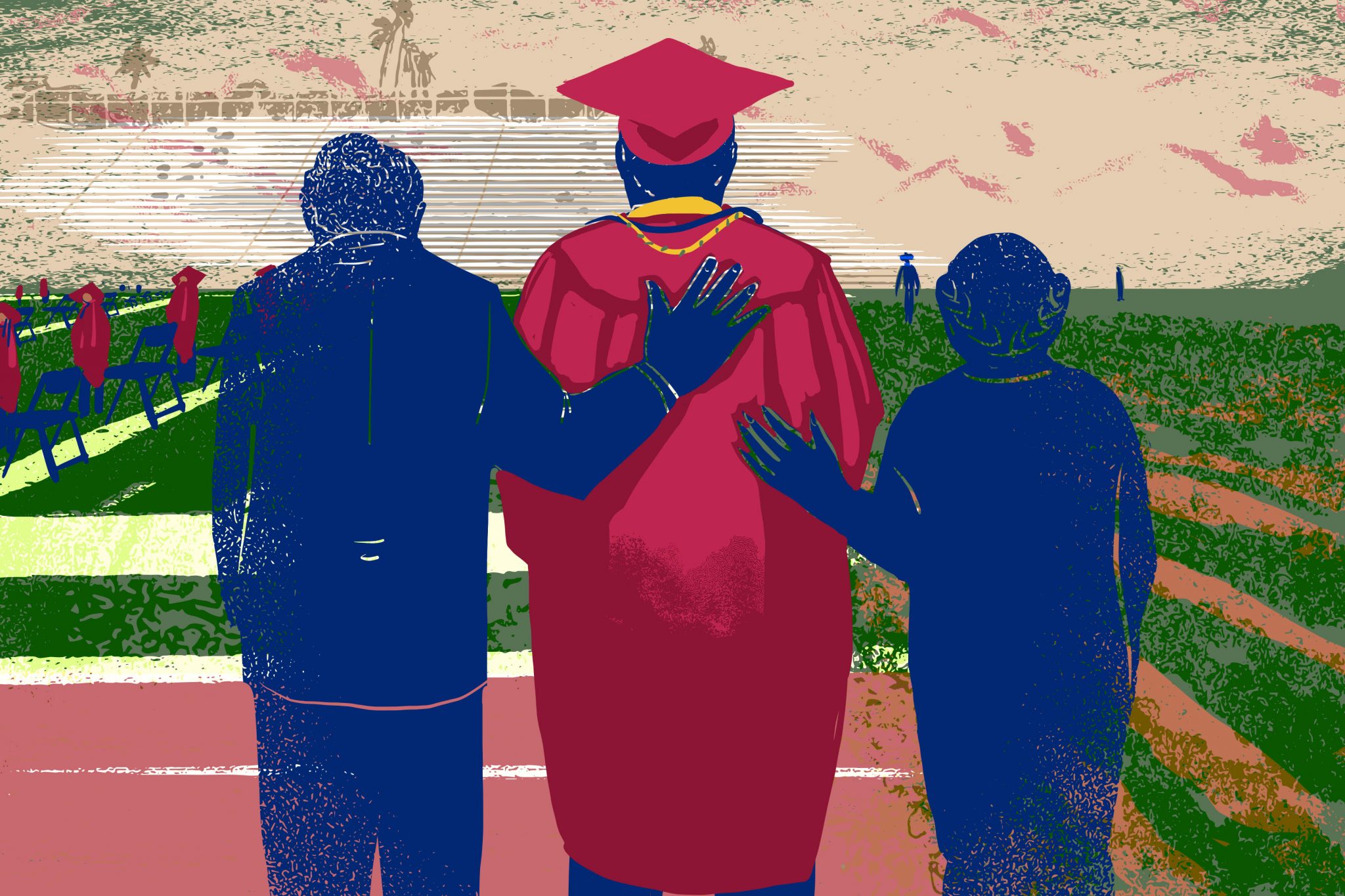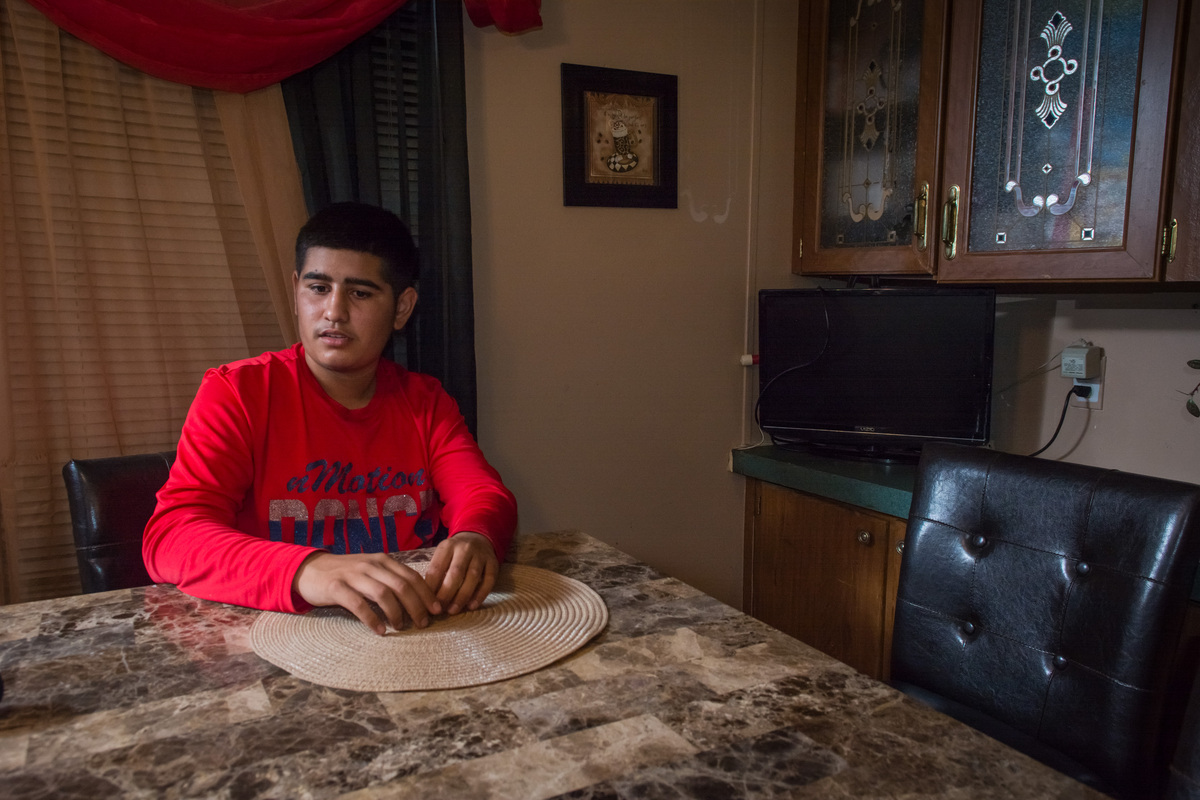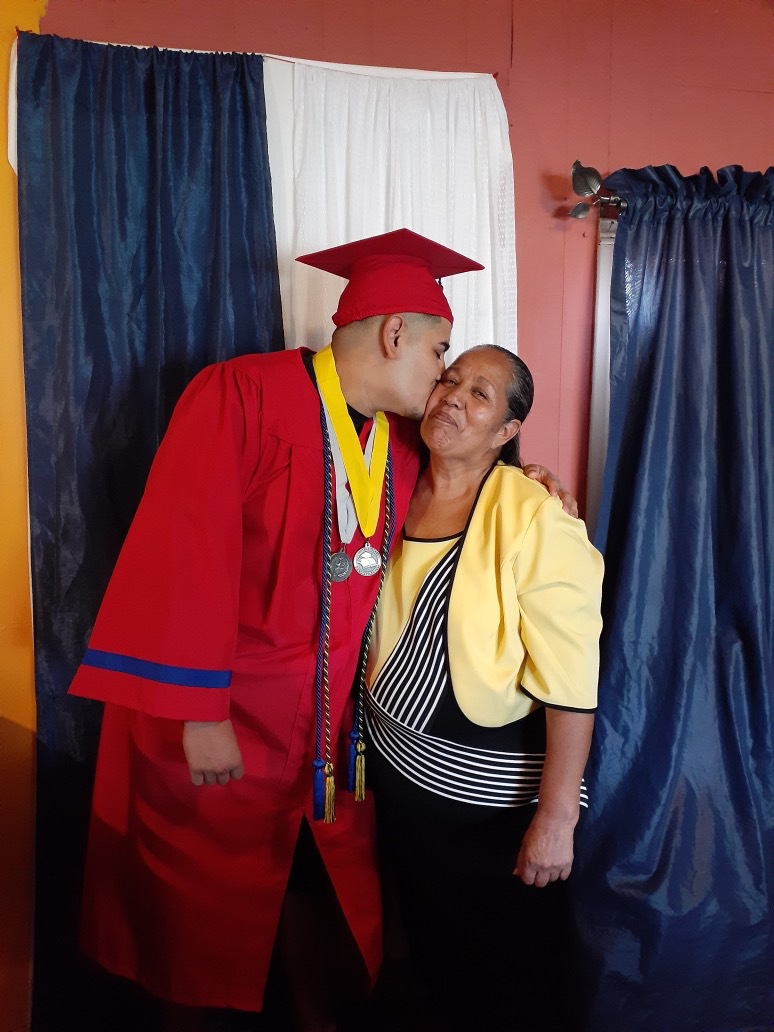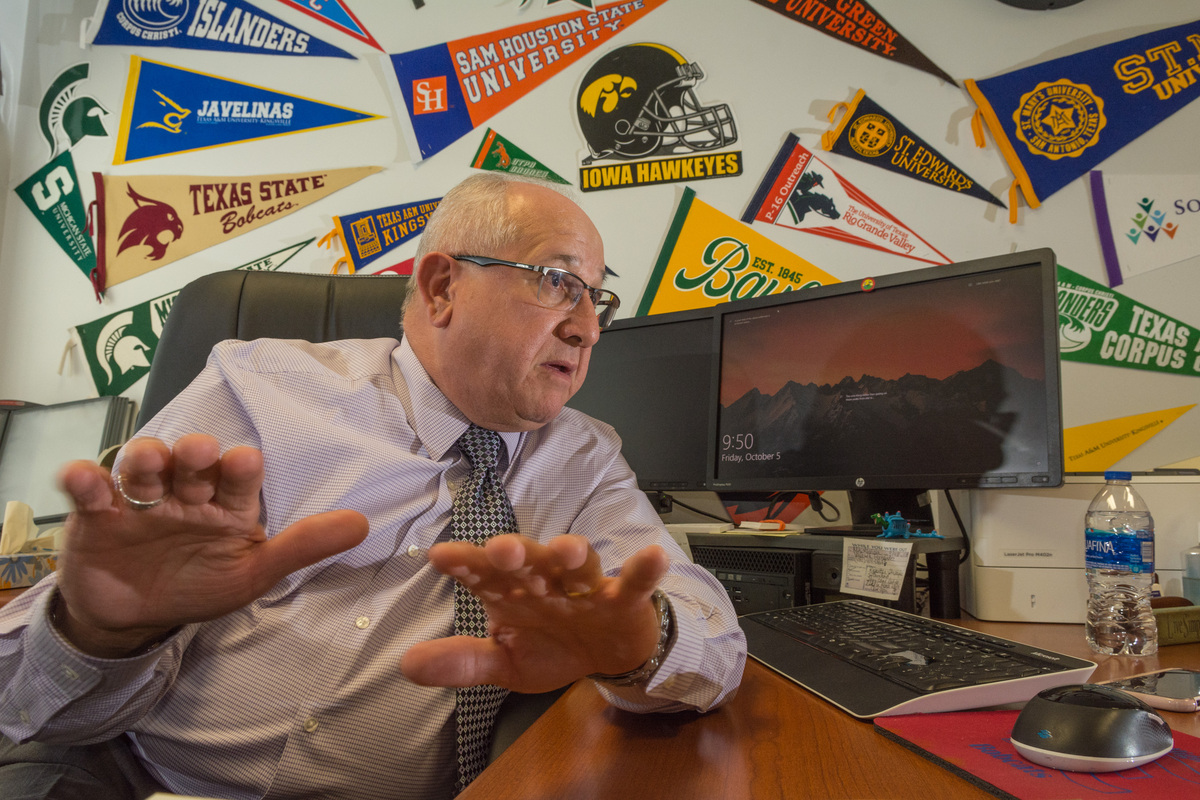

Illustration by Alex Charner.
This story was produced with support from the International Women’s Media Foundation and the Education Writers Association.
Reyes started migrating when he was 9 years old, traveling cross-country from his home in South Texas to the agricultural fields of Michigan. For years, he’d leave school early in spring and return late in fall, spending the months between picking asparagus, weeding fields, and earning money to help support his family. The work was tough–long hours, hot days, little pay.


Reyes in his home in Edinburg, Texas in Fall of 2018. (Photo by Jerry Redfern)
When he returned to school, he would gather with other students who work in agriculture at the Migrant Student Club at Edinburg High School. It was a place where he could share his experiences and get support from a counselor who works only with migrant students.
Across the country, over 300,000 students migrate for work in agriculture and the students face extraordinary odds, both in academia and their social life. They miss the typical activities of other teenagers, like prom or school sports. And it’s easy for them to slip through the cracks academically and drop out. These are all reasons why the federal government established the Migrant Education Program more than half a century ago to support them—yet migrant students across the U.S. still face enormous odds.


Reyes with his grandmother on the day of his socially-distant graduation from Edinburg High School in 2020. (Courtesy of Reyes)
Like hundreds of thousands of migrant students nationwide, Reyes struggled to balance his work and his education. He had dreams of graduating from high school and studying something that would give him a new career–in architecture, welding, or engineering.


“Roberto Garcia has been a counselor for migrant students for over 15 years, and the organizer of the Migrant Student Club at Edinburg High School. (Photo by Jerry Redfern)
Reporters Karen Coates and Valeria Fernández met members of the Migrant Student Club and this past spring, they began following Reyes as he entered his final semester of high school. On the path to graduation, he would end up having to juggle school work, financially helping his family, and an unexpected twist: the COVID-19 pandemic.
This Latino USA podcast was produced by Karen Coates and Valeria Fernández.
***
NPR’s Latino USA with Maria Hinojosa, produced by Futuro Media, is the longest-running Latino-focused program on U.S. public media.


